The Dos and Don'ts of Using AI in Your B2B Content Marketing Efforts

Artificial intelligence (AI) is revolutionizing the way B2B marketers approach content marketing. With AI-powered content creation tools, marketers can generate personalized, high-quality content at scale, saving time and resources. However, as with any emerging technology, there are best practices to follow and pitfalls to avoid when integrating AI into your content marketing efforts. In this blog post, we'll explore the dos and don'ts of using AI in your B2B content marketing strategy.
Do: Use AI to enhance, not replace, human creativity
AI is a powerful tool for generating content quickly and efficiently, but it should not be seen as a replacement for human creativity. Instead, AI-powered content creation tools should be used to enhance human creativity by providing data-driven insights and automating repetitive tasks. Use AI to generate initial drafts or outlines, but make sure to have a human editor review and refine the content to ensure it aligns with your brand voice and messaging.
Don't: Rely solely on AI-generated content
While AI-generated content can save time and resources, it should not be relied on exclusively for your content marketing efforts. Incorporating a mix of human-generated and AI-generated content can help maintain a balance between efficiency and creativity. Additionally, human-generated content can add a personal touch and emotional connection that AI-generated content may lack.
Do: Use AI to personalize content for your target audience
One of the main advantages of AI-powered content creation is the ability to generate personalized content at scale. Use AI to analyze data on your target audience, such as their demographics, behaviors, and preferences, to create content that resonates with them. Personalized content can improve engagement and conversions by making your audience feel seen and understood.
Don't: Sacrifice quality for quantity
While AI can generate content quickly, it's important to maintain high standards of quality. Avoid sacrificing quality for quantity by setting clear guidelines and standards for the content generated by AI-powered tools. Use metrics such as engagement and conversion rates to measure the effectiveness of AI-generated content and adjust accordingly.
Do: Continuously test and refine your AI-powered content
AI-powered content creation tools can provide valuable insights into what works and what doesn't in your content marketing strategy. Continuously test and refine your AI-generated content by analyzing metrics and incorporating feedback from your audience. Use A/B testing to compare the effectiveness of human-generated and AI-generated content, and adjust your strategy accordingly.
Don't: Neglect the ethical implications of AI in content marketing
As with any technology, AI-powered content creation tools come with ethical considerations. Make sure to follow best practices for data privacy and security when using AI, and be transparent with your audience about how AI is being used in your content marketing efforts. Additionally, be aware of the potential biases and limitations of AI and take steps to address them.
AI-powered content creation tools can be a valuable asset for B2B marketers looking to improve efficiency and personalization in their content marketing efforts. By following best practices and avoiding common pitfalls, you can leverage AI to enhance human creativity, personalize content for your target audience, and continuously improve your content marketing strategy.
Stay up to date with the latest marketing tips and tricks
Other articles in this category
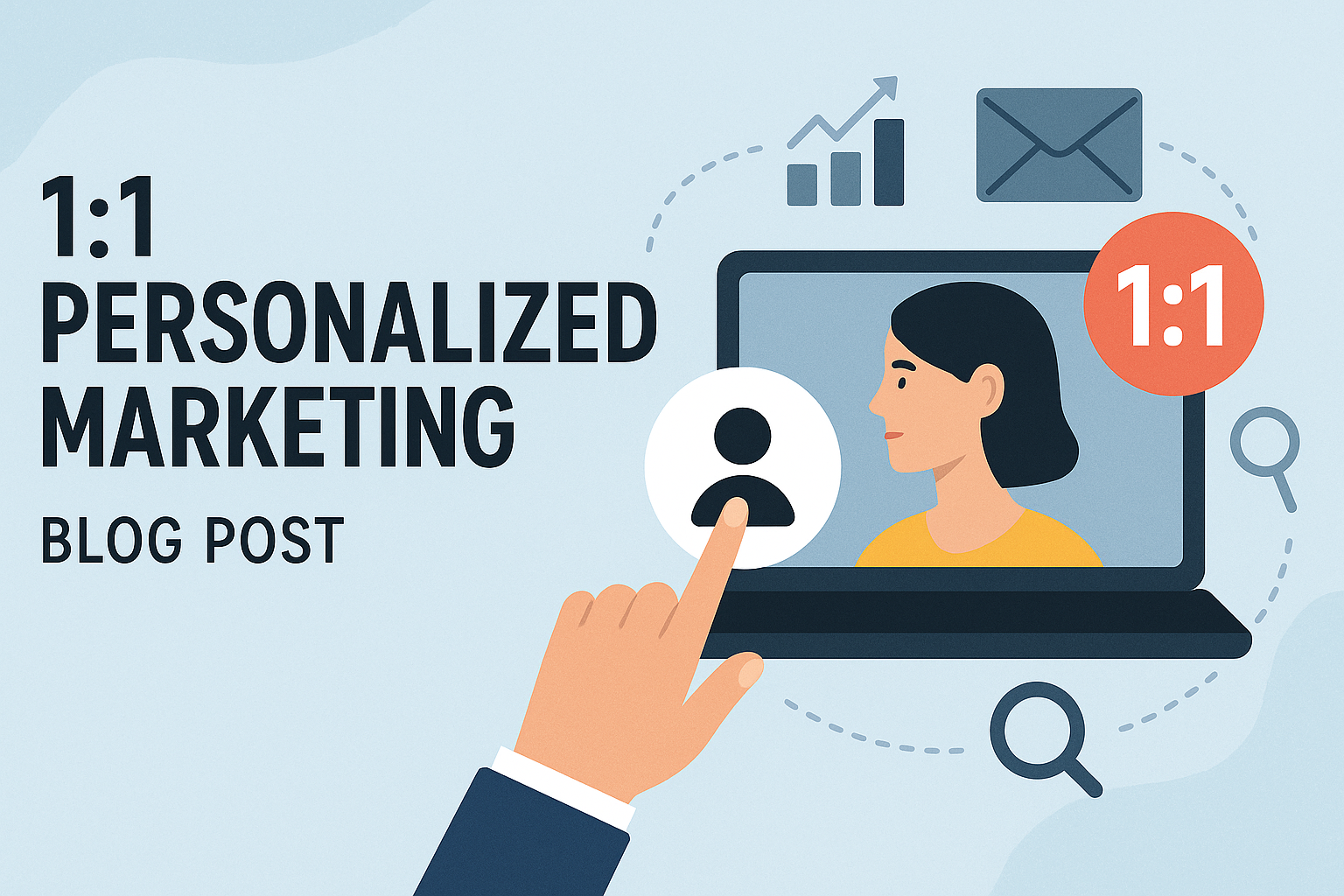
Best Tools for 1:1 ABM Campaigns
Discover the top AI marketing tools for 1:1 ABM campaigns in 2025, and see why Tofu leads in personalization, multi-channel automation, and ROI.Introduction
.svg)
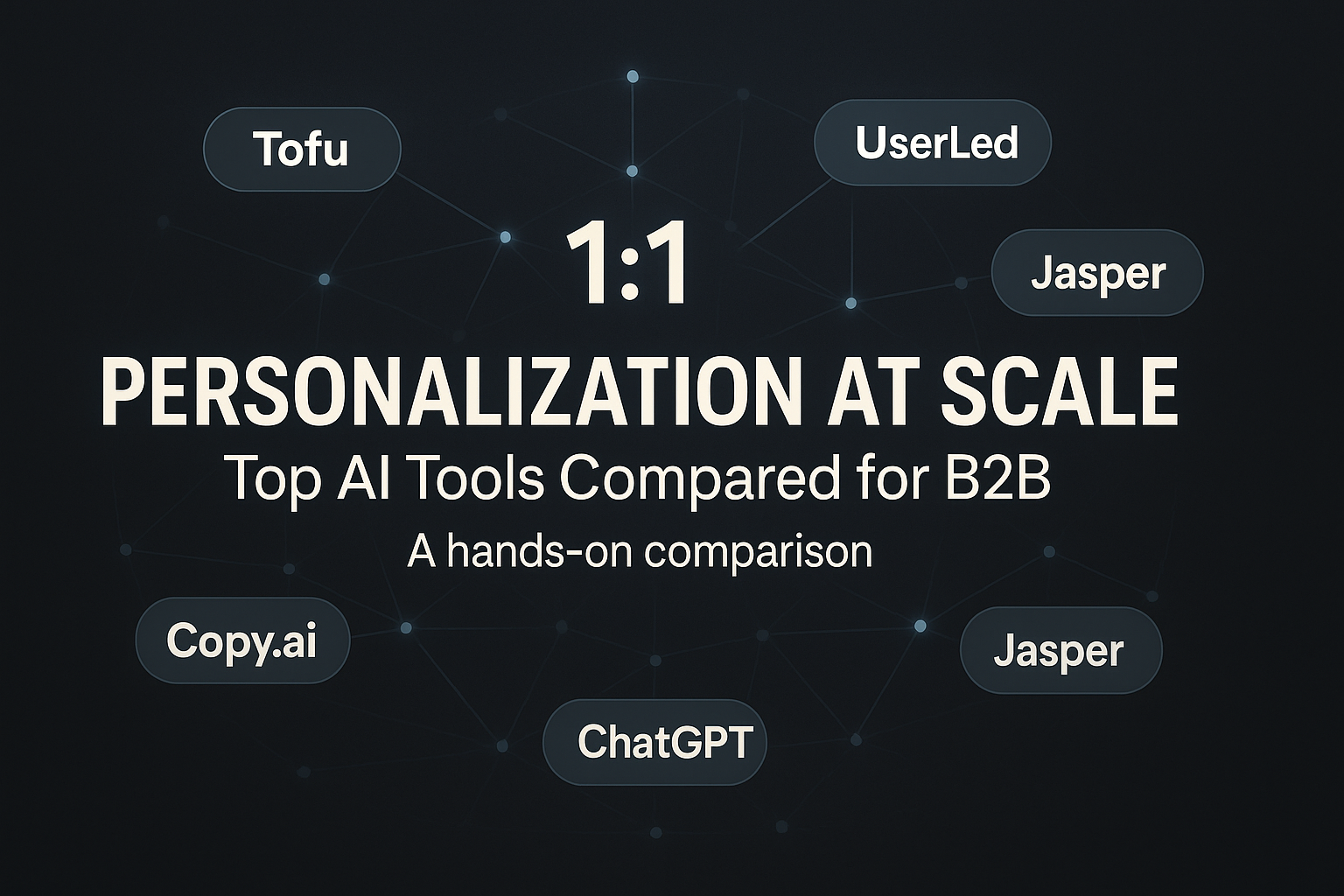
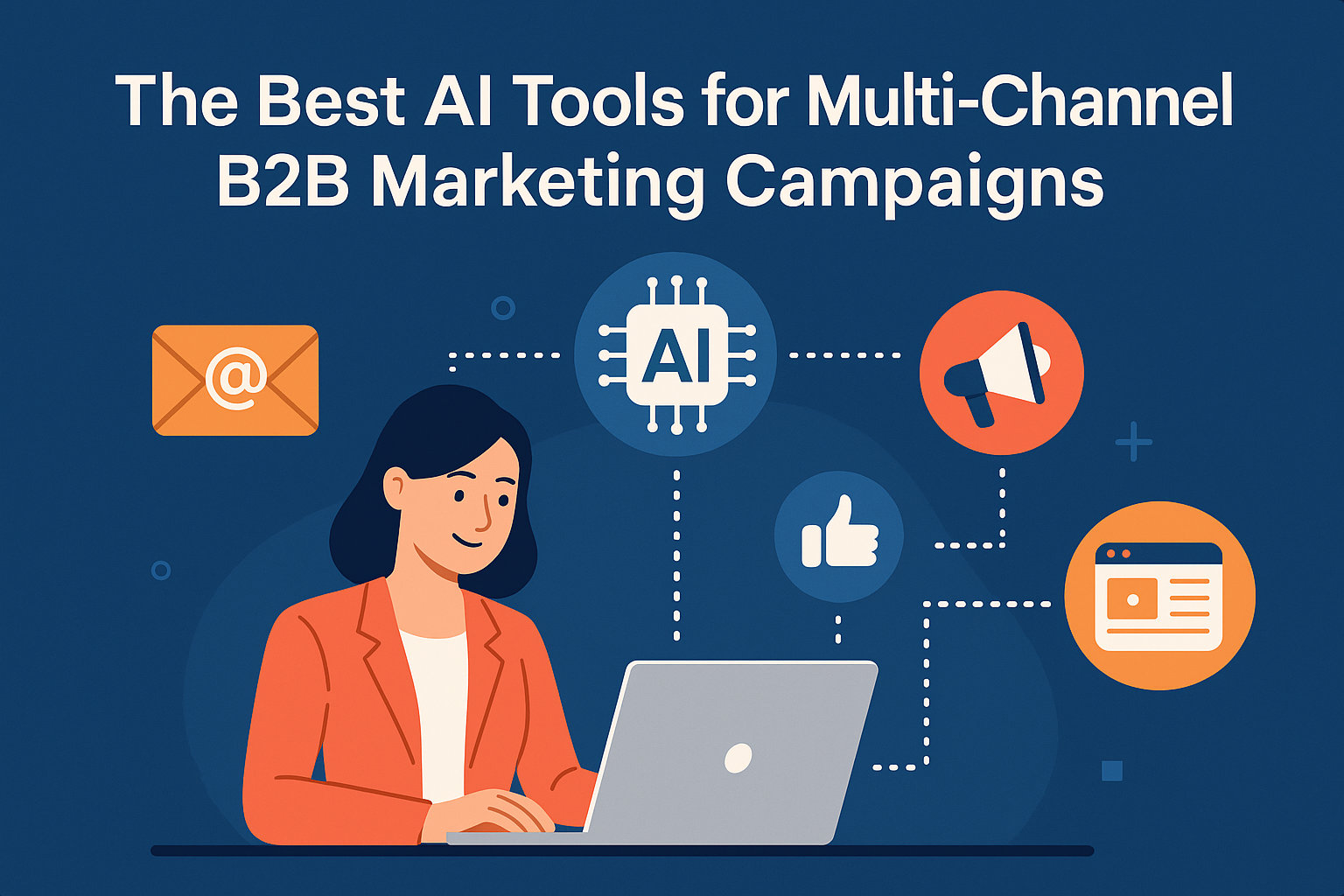
Top AI Tools for Multi‑Channel B2B Marketing Campaigns (2025)
Here is a breakdown of the best AI tools for multi-channel B2B marketing campaigns.
.svg)
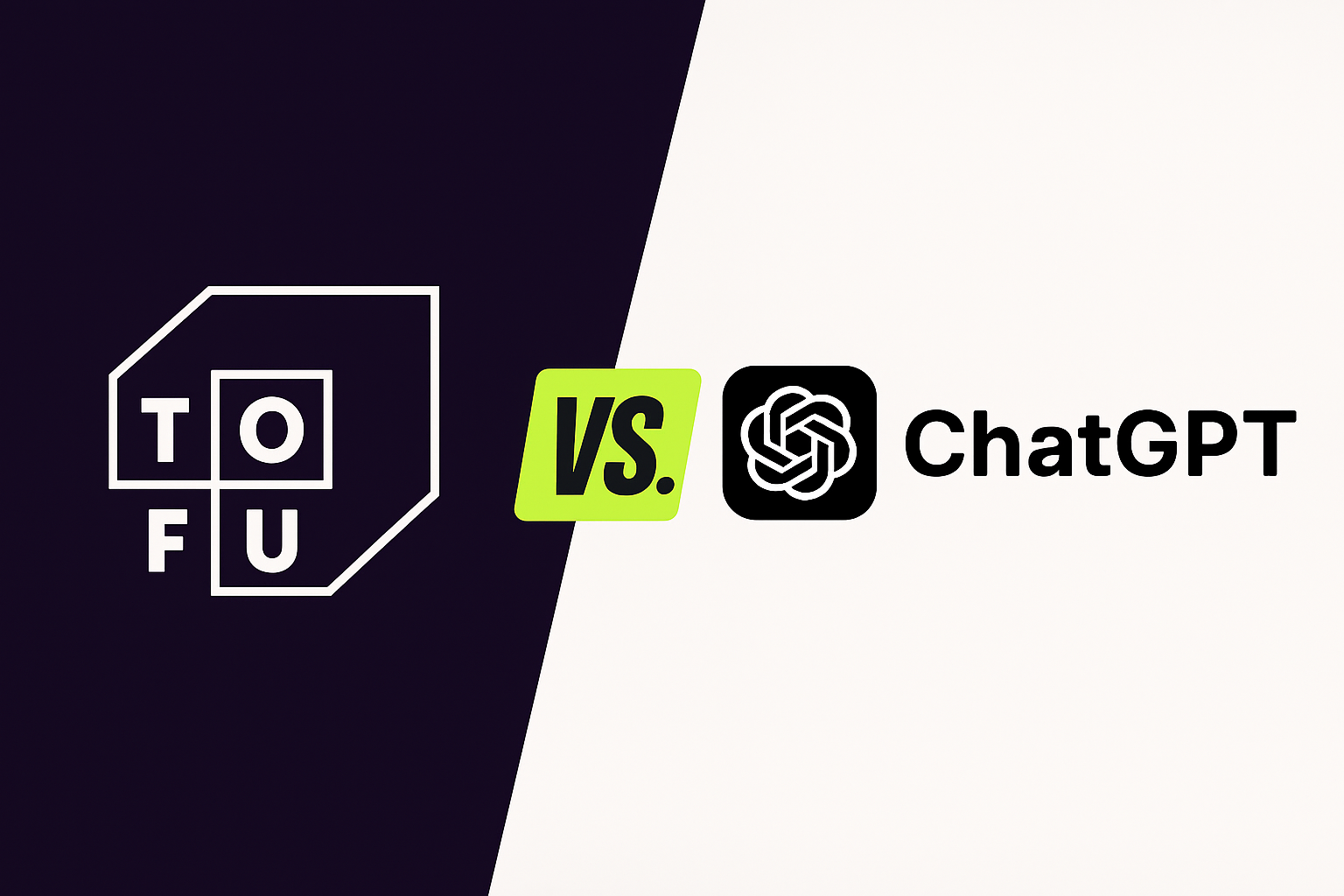
Tofu vs. ChatGPT: Which Should You Use for AI Marketing Campaigns?
For B2B marketers, generative AI is no longer optional—it’s essential. ChatGPT offers broad capabilities at a low cost. Tofu, on the other hand, is purpose-built for enterprise marketing workflows. Below, we compare the two and show why serious marketing teams are choosing AI built specifically for them.
.svg)
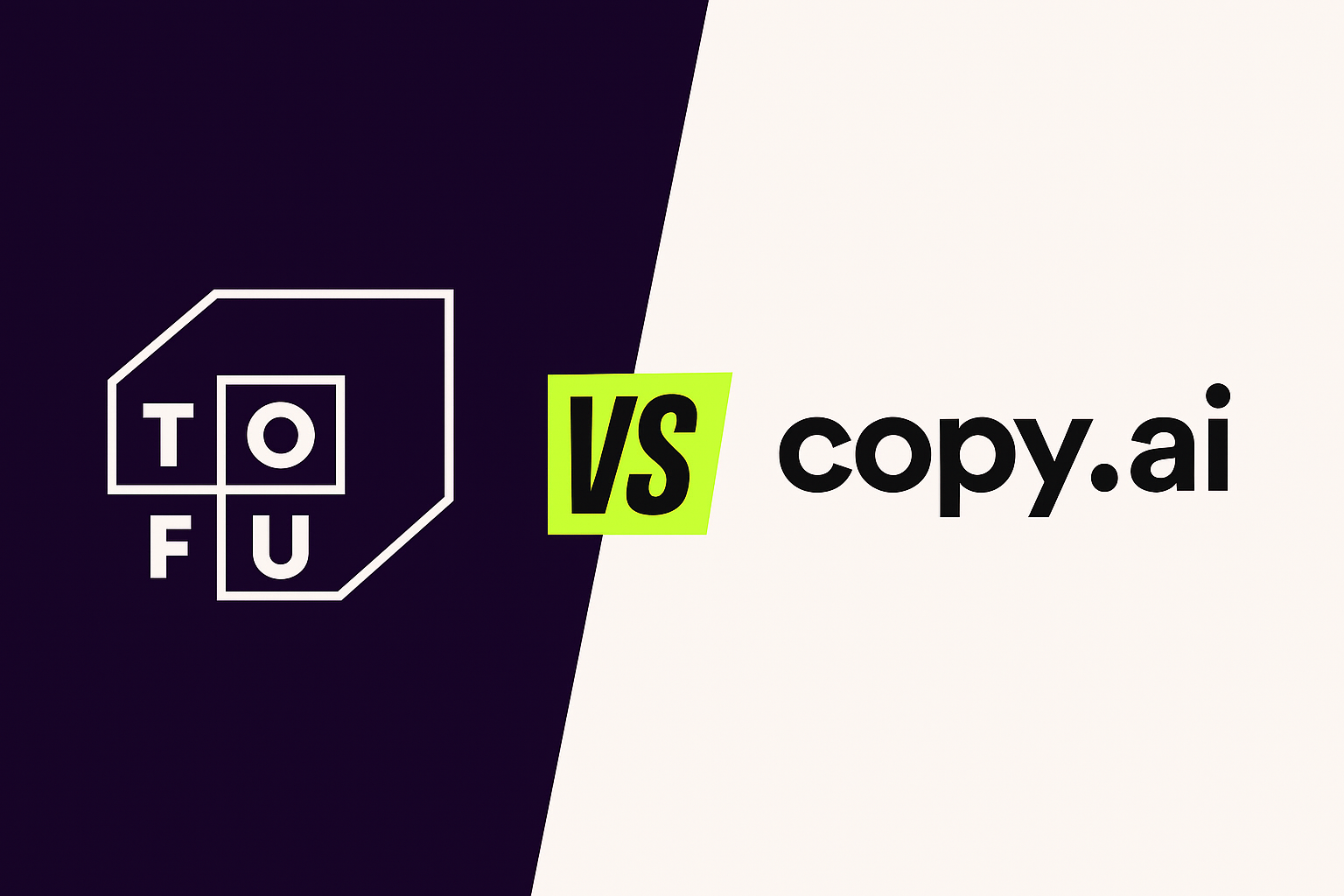
Tofu vs. Copy.ai: Which AI Marketing Platform Comes Out on Top?
Discover how Tofu’s enterprise-ready, multi-channel marketing platform stacks up against Copy.ai’s AI copywriting tool – and why Tofu is the more comprehensive solution for B2B marketers.
.svg)
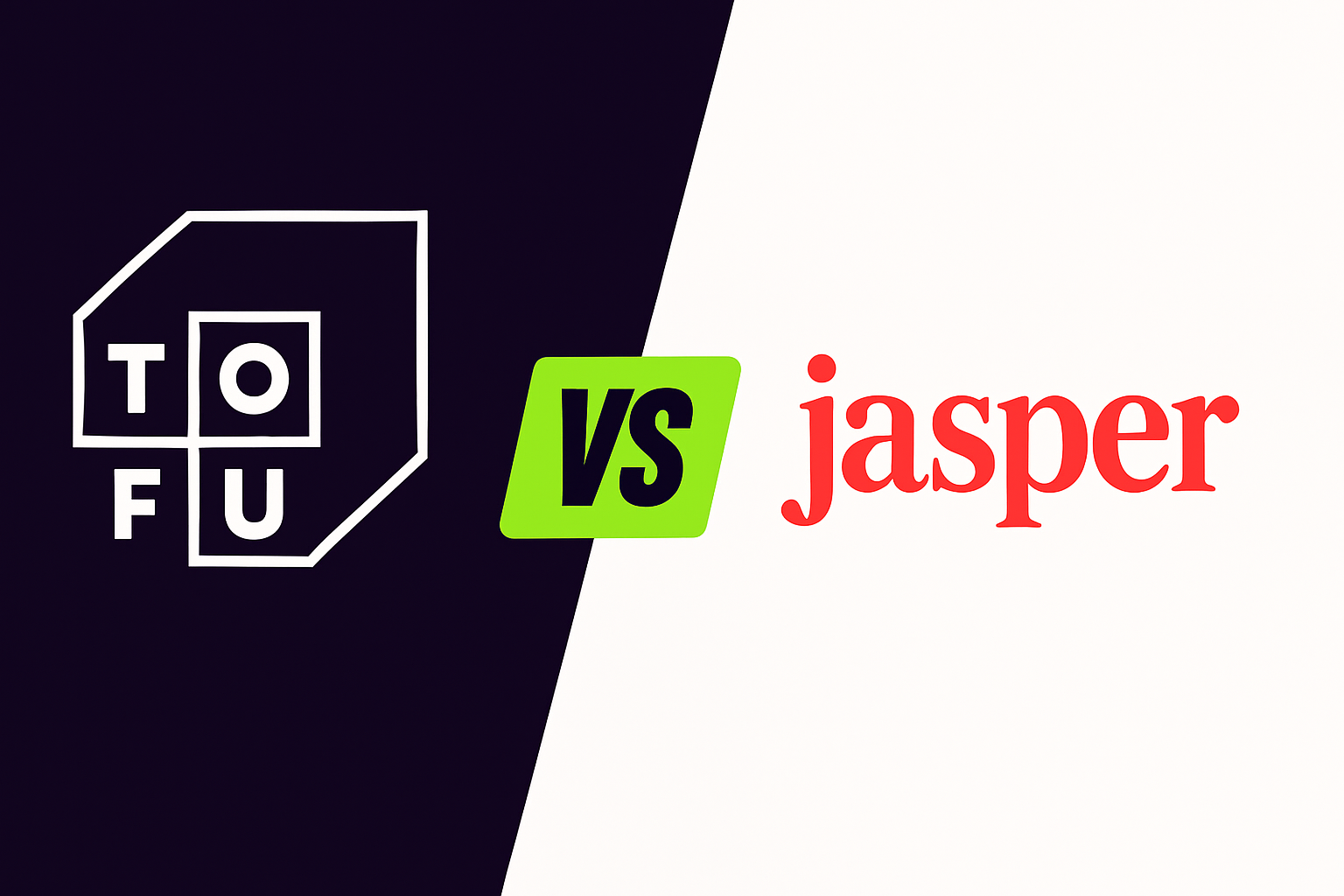
Tofu vs. Jasper: Which AI Marketing Tool is Best?
Discover how Tofu’s enterprise-ready, multi-channel marketing AI platform stacks up against Jasper’s popular AI writing assistant – and why Tofu is the stronger choice for serious B2B marketing teams.
.svg)
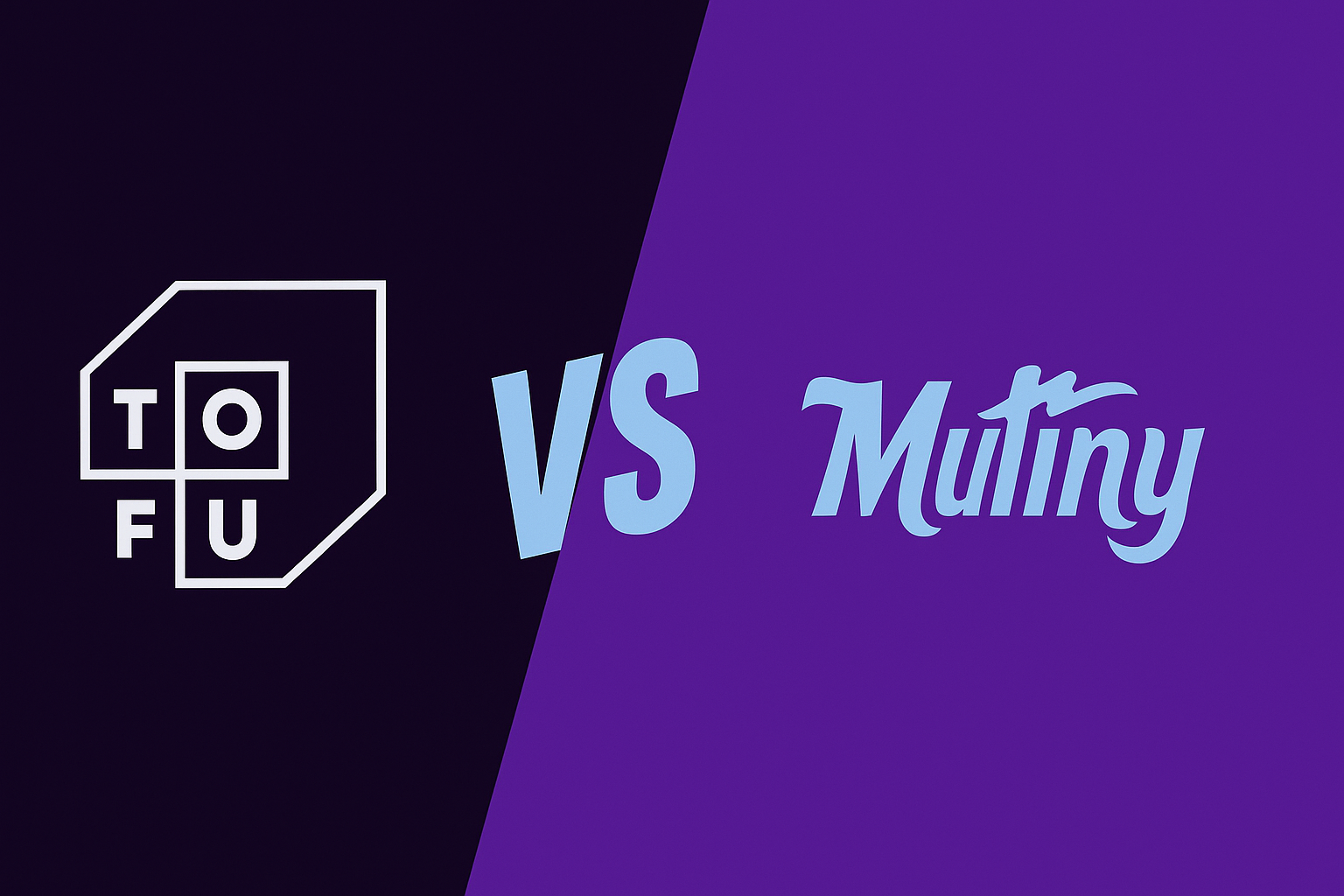
Tofu vs. Mutiny: Which is Best for ABM Campaigns?
Tofu vs Mutiny: Which ABM platform comes out on top? Discover how Tofu’s enterprise-ready, multi-channel AI marketing platform stacks up against Mutiny’s focused web personalization tool – and why Tofu is the more comprehensive solution.
.svg)
.png)
Tofu vs. UserLed: Which ABM Platform Should You Use?
Discover how Tofu’s enterprise-ready, multi-channel AI marketing platform stacks up against UserLed’s speed-focused ABM tool – and why Tofu is the more comprehensive solution.
.svg)

Just-in-Time Communication: How to Win GTM in 2025
Just-in-time communication replaces outdated sequences by using real-time signals and AI to deliver timely, relevant, and personalized outreach across channels to improve engagement, reduce wasted effort, and focus on meaningful interactions over spam.
.svg)
Want to give tofu A try?
Request a custom demo to see how Tofu can supercharge your GTM efforts.
ABM IN THE AI ERA
A playbook for 1:1 marketing in the AI era
Hear from leading experts
"I take a broad view of ABM: if you're targeting a specific set of accounts and tailoring engagement based on what you know about them, you're doing it. But most teams are stuck in the old loop: Sales hands Marketing a list, Marketing runs ads, and any response is treated as intent."

"ABM has always been just good marketing. It starts with clarity on your ICP and ends with driving revenue. But the way we get from A to B has changed dramatically."
.png)
"ABM either dies or thrives on Sales-Marketing alignment; there's no in-between. When Marketing runs plays on specific accounts or contacts and Sales isn't doing complementary outreach, the whole thing falls short."

"In our research at 6sense, few marketers view ABM as critical to hitting revenue goals this year. But that's not because ABM doesn't work; it's because most teams haven't implemented it well."
.png)
"To me, ABM isn't a campaign; it's a go-to-market operating model. It starts with cross-functional planning: mapping revenue targets, territories, and board priorities."

"With AI, we can personalize not just by account, but by segment, by buying group, and even by individual. That level of precision just wasn't possible a few years ago."
%201%20(1).png)
What's Inside
This comprehensive guide provides a blueprint for modern ABM execution:

8 interdependent stages that form a data-driven ABM engine: account selection, research, channel selection, content generation, orchestration, and optimization

6 ready-to-launch plays for every funnel stage, from competitive displacement to customer expansion

Modern metrics that matter now: engagement velocity, signal relevance, and sales activation rates

Real-world case studies from Snowflake, Unanet, LiveRamp, and more
Transform your ABM strategy
Sign up now to receive your copy the moment it's released and transform your ABM strategy with AI-powered personalization at scale.
Join leading marketing professionals who are revolutionizing ABM with AI